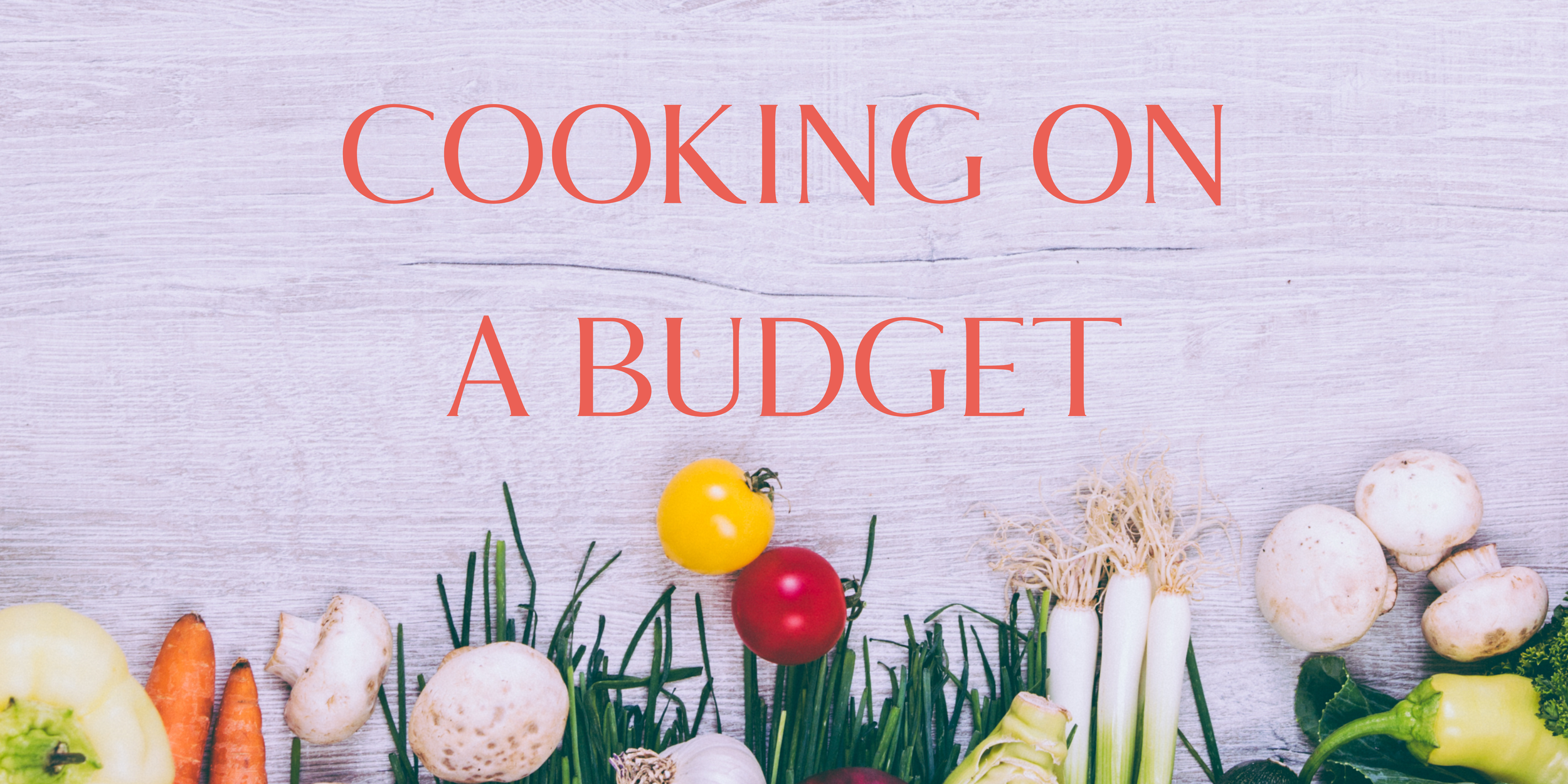5 tips for cooking on a budget
With the cost of living on the up and predictions for further increases on food and other household expenses to come, a lot of us will be feeling the pinch. Finding ways to make your weekly shop go further can help.
Fact : you’re likely to spend 40% more on a food shop if you don’t use a shopping list. Factor in a bit of meal planning and list writing at the beginning of the week it will reduce your stress when it comes to mealtimes, save you money and helps reduce food waste.
1. Meal plan before you shop
Think of meals you want to make for the week, then make a list of the ingredients you need. I always like to do a little store cupboard and freezer audit at this point and cross off the things I already have in, then shop for what’s missing.
Also, keep a running shopping list somewhere handy, as you finish something add it to the list to restock.
2. Shop smart
Look out for those yellow reduced stickers and 3 for 2 offers (on meat and fish) whilst grocery shopping, if there’s something in the reduced isle you can swap out in one of your meals or can freeze to use another time buy it. Also, try swapping from known brands to supermarket own, they are often similar in quality and cost less than well-recognised brands.
3. Leftovers and batch cooking
If you’re cooking dinner, double the recipe so you can save leftovers for the next day, put in the freezer for another time. If you do eat out ask for a doggy bag to bring them home and try to incorporate into your next day’s lunch or next meal. If you don’t want to eat the same meal twice in a row, get creative with your leftovers too. Leftover chicken is good for lunch wraps/salads, it can also be added to a risotto, soups or a pie.
4. Store cupboard essentials
If you have room, make use of both your store cupboards and freezers. Stock up on essential foods, from rice to tins of tomatoes you’ll always have meal options in cupboards. I’ve made many a lunch and dinner by raiding the store cupboard and freezer. See my related blogs for tips on what store cupboard and freezer essentials.
5. Reduce food waste
Food waste is a massive and growing issue, from bread to banana bins are full of unused food going to landfill, the average household throws away the equivalent of 8 meals a week! To prevent food waste and save money, use the most perishable foods first. A really easy way to use up surplus and wilting vegetables is to make soup & stews which can be frozen for those days when cooking from scratch just isn’t an option. I often have ‘emergency’ soup or pasta sauce in my freezer.
Related blogs:


